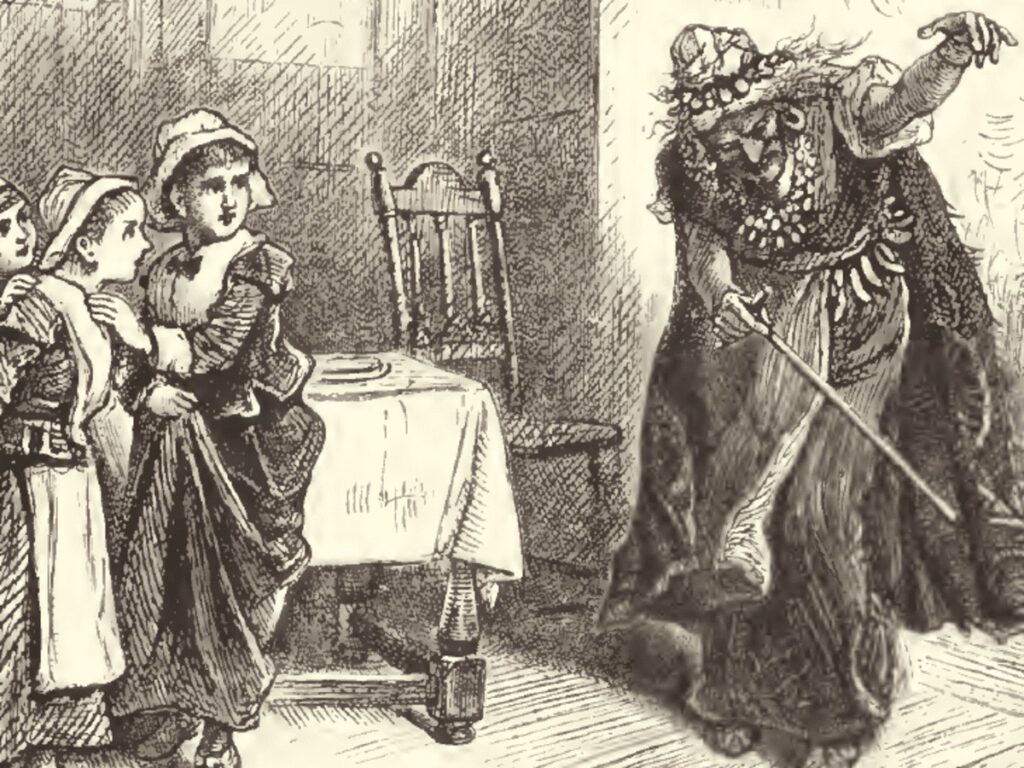Tituba was the first person accused of practicing witchcraft during the Salem Witch Trials. She was an easy target as she was a slave owned by Samuel Parris, who was very involved and interested in the trials.
She was originally from South America and, after being purchased by Parris, was sailed from Barbados to the New England Colonies.
There is not much known about Tituba's prior to being a slave. However, she became an important woman in the Salem Witch trials after she confessed to witchcraft and also claimed the Sarah Good and Sarah Osborne participated in her ceremonies.
She would be thrown into jail and later released.
Jump to:
Family Life and Trials
Tituba was married to John Indian, who was a Native American from either Central or South America. Tituba is said to be named after the original town she was from, which was either in Barbados or South America.
Her husband went on to become one of the accusers in the Witch Trials. They appear documented together in Samuel Parris's church record book.
Tituba was the first person to be accused by Elizabeth Parris and Abigail Williams of witchcraft. It has been theorized that Tituba told the girls tales of voodoo and witchcraft prior to the accusations. She was also the first to confess to witchcraft in Salem Village in March 1692.
Initially denying her involvement in witchcraft, Tituba later confessed to making a "witch cake" due to being beaten by Samuel Parris with the intention of getting a confession. When questioned later, she added that she knew about occult techniques from her mistress in Barbados, who taught her how to ward herself from evil powers and how to reveal the cause of witchcraft.

Since such knowledge was not meant for harm, Tituba again asserted to Parris she was not a witch but admitted she had participated in an occult ritual when she made the witch cake in an attempt to help Elizabeth Parris.
Tituba, Sarah Good, and Sarah Osborne were sent to jail in Boston to await trial and punishment on March 7, 1692. Despite these confessions, there is no proof that she did the things to which she confessed.
Other women and men from surrounding villages were accused of witchcraft and arrested at the Salem witchcraft trials. Not only did Tituba accuse others in her confession, but she also talked about black dogs, hogs, a yellow bird, red and black rats, cats, a fox, and a wolf.
Tituba talked about riding sticks to different places.
She confessed that Sarah Osborne possessed a creature with the head of a woman, two legs, and wings. Since it mixed various perspectives on witchcraft, Tituba's confession confused listeners, and its similarities to certain stock tropes of demonology caused some Salem Village residents to believe that Satan was among them.
After the trials, Tituba remained in jail because Samuel Parris refused to pay her jail fees. In April of 1693, Tituba was sold to an unknown person for the price of her jail fees.
She was interviewed after the trials by Robert Calef. During the interview, she said that Samuel Parris had beaten a confession out of her and then coached her in what to say and how to say it when first questioned.
<- Return to List of People Involved in the Salem Witch Trials
